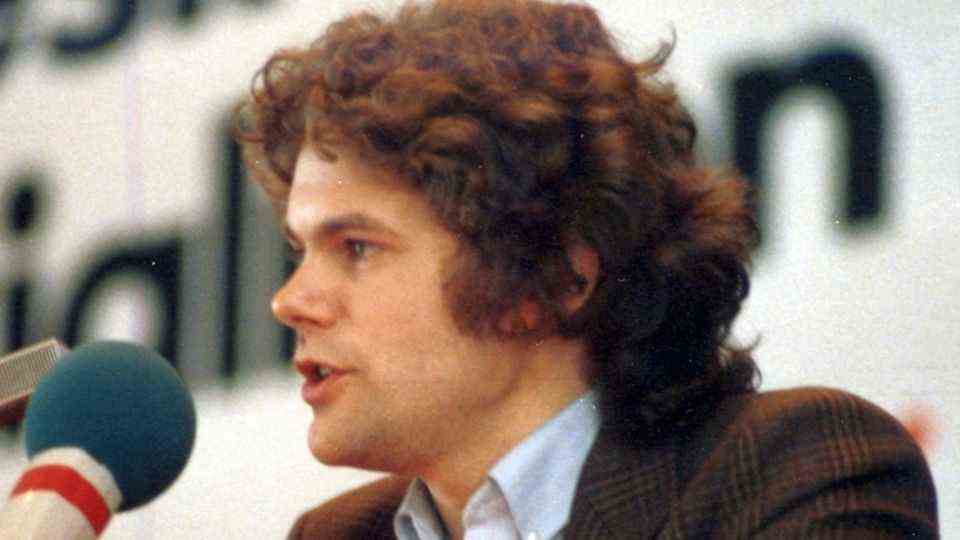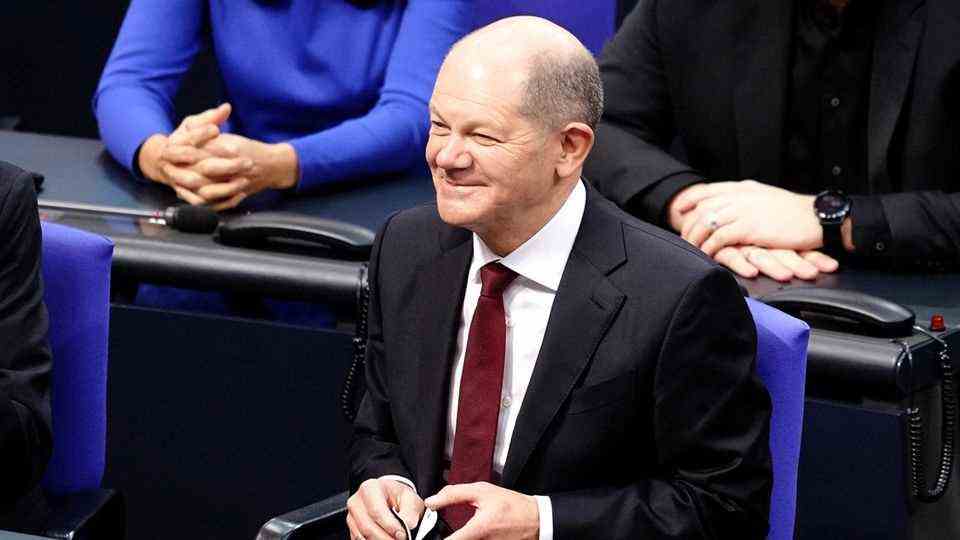There have already been downright swan songs for German social democracy. But those who are said to be dead live longer, as is well known. This also applies to the SPD. And how! Suddenly the party holds an enormous amount of power in its hand. Can she take advantage of the unexpected opportunity?
Suddenly it is back in a splendid position, the German social democracy. And not just because, since Wednesday, Olaf Scholz has been the new Federal Chancellor and the strongest parliamentary group in the Bundestag. As head of government and the most powerful man in the country, Scholz is formally number 3 in the state. Number 1, the Federal President – a Social Democrat (even if Frank-Walter Steinmeier has to let his party membership rest for the period of office). Number 2, the President of Parliament – an SPD woman, Bärbel Bas. And then there are eleven out of 16 state governments in which the party is involved. It provides the prime ministers or heads of government in seven countries. An enormous amount of power for a party that was pronounced dead only about a year ago.
“That’s awesome,” says the political scientist and editor of the “Sheets for German and International Politics”, Albrecht von Lucke, in conversation with the star to. “But it’s also a partly imagined power.” 25 percent for a Federal Chancellor are anything but an omnipotence, “we must never forget that”. Olaf Scholz is also very aware of this. “His motto is therefore always rounding off power, stabilizing power and expanding power. This has become part of the man’s flesh and blood,” said von Lucke.
SPD in August 2020: Why a candidate for chancellor?
As for the new power of the SPD, Scholz started this three-way battle in August 2020. Back then, more than a year before the Bundestag election, his party nominated him as candidate for Chancellor – in a situation in which a number of comrades asked themselves: Why should I even put up a candidate? The party has been lagging around 15 percent in surveys for a long time, and Scholz’s mantra “I want to become Chancellor” at times seemed unrealistic. When he later went on to say that the chances of getting the chancellor had not been as great as in this election, he received a shake of the head. His reasoning was quite conclusive: Without Angela Merkel, the official bonus would not play a role, and therefore percentages of 20 plus could be enough to move into the Chancellery.
With this assessment, the new Chancellor was right, as has been shown. Nevertheless, it was not a brilliant ascent on my own. “This is all due to the failure of the CDU and the Greens,” said Albrecht von Lucke. “There has never been so much opponent support for the SPD as this year,” stated Wolfgang Schroeder, professor at the University of Kassel and the Science Center in Berlin. At the end of the Merkel years, the Union was not only completely exhausted, “it was also torn apart in front of the cameras,” said Schroeder zum star. With his public attacks on Chancellor candidate Armin Laschet, CSU boss Markus Söder had an even bigger part in this than CDU man Laschet himself SPD used.
SPD knew how to use “a gift from heaven”
However: the opportunity is one thing, to be able to use such a “gift from heaven” (Schroeder), the other. Election successes in the federal states (Rhineland-Palatinate, Berlin, Mecklenburg-Western Pomerania) strengthened the SPD’s backing. Olaf Scholz, the new Chancellor, is, however, the decisive figure – as the right candidate at the right time, but also with a view to the following years of government and the already formulated will to maintain power in the period afterwards. “Scholz has his hat on in the coalition. He’s the veteran,” says Albrecht von Lucke, “that makes him strong”. The Greens and the FDP, who naturally have many newcomers to the ministerial office, will clearly feel this in everyday life in the coalition, prophesied von Lucke. And further: “Success is volatile and can wane very quickly. That is why Scholz will always try to control the situation in the coalition in order to always be ahead in the political ranking.”

In the narrow election victory, Wolfgang Schroeder also sees an opportunity for the party. “So you know that you are not in control of power, but are the coordinator of power,” believes Schroeder, who is a member of the SPD’s Fundamental Values Commission. The Social Democrats would now have the chance to maintain and develop the unity that had arisen in the will to form a government without the Union and not, as was often the case in the past, “to quarrel like the tinkerers”. Scholz is also the most important figure in this. “If the SPD wants to be successful, it has to function as a team, and to function as a team means that you have to be in the arrangement of loyalty with the team leader,” said Schroeder. At the same time, however, there must also be a balance with the party and other interests. “That is what Karl Lauterbach stands for, because Lauterbach is not yet Team Scholz,” says the political scientist, citing the example of the new health minister. He owes his office primarily to the strong public support.
Opportunity for social democracy in a modern society
Through the entire process of the election campaign and the formation of a government, the SPD could well become a “more realistic, more pragmatic party” that nevertheless followed its values and its will to reform society. She has a great chance to now recognize that she can enter a new age for herself, “a new epoch of what social democracy is in a modern, heterogeneous society.” To do this, however, the party must critically analyze its victory in order to draw the appropriate conclusions.
Whether the SPD, with the right conclusions, can remain the determining political force longer than just until the next election depends on how quickly the Union manages to recover. And of course from the success of the Scholz government. “The big question is how to deal with the crisis, and we are all talking in the dark at the moment,” says Albrecht von Lucke. Nobody could know whether Olaf Scholz could get the corona crisis under control, with the climate crisis it was even more uncertain. “It all depends on the question of how ready the man is for a crisis. So far, all of that has not been covered.”


